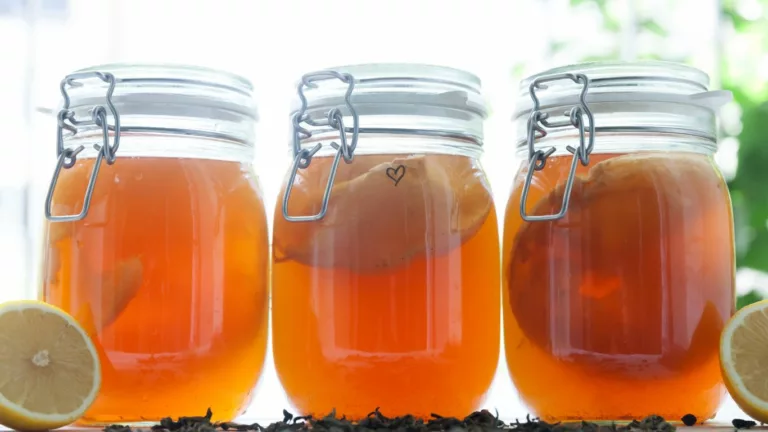Best Foods to Strengthen Lungs for Asthma Relief Naturally
If you’re living with asthma like many of my patients, you’re probably already aware that it’s not just about inhalers and avoiding triggers. Over the years working as a pulmonary nurse practitioner, I’ve seen firsthand how powerful food choices can be in supporting respiratory health. That’s why I often talk to my patients about foods to strengthen lungs for asthma — it’s a conversation that often surprises them but always gets them curious.
Why Nutrition Matters for Asthma Management

Your lungs are constantly exposed to irritants — from pollen to pollution — and when you have asthma, that inflammation can get worse quickly. This is where food can be your secret weapon. I always tell my patients: you can’t control the air outside, but you can control what’s on your plate. And let me tell you, I’ve seen people reduce the frequency and intensity of flare-ups just by tweaking their diets.
When you feed your body anti-inflammatory, antioxidant-rich foods, you’re basically giving your lungs the tools they need to fight inflammation and stay strong. Think of it like this: food isn’t just fuel, it’s also medicine — especially for people with chronic conditions like asthma.
How Inflammation Affects the Lungs
Inflammation is a key driver in asthma symptoms. When airways become inflamed, they narrow, swell, and fill with mucus — making it tough to breathe. Certain foods can help reduce that inflammation and ease breathing, while others (hello, ultra-processed snacks) can do the opposite.
Oxidative Stress and Antioxidants
Ever heard of oxidative stress? It’s when your body has more free radicals than it can handle, and it plays a big role in asthma. Antioxidants from foods like berries, leafy greens, and nuts help neutralize those free radicals, keeping your lungs from going into overdrive. I usually recommend my patients eat the rainbow — not candy, but colorful fruits and veggies — because they’re packed with these helpful compounds.
Top Anti-Inflammatory Foods to Strengthen Lungs for Asthma

1. Fatty Fish (Omega-3 Superstars)
Salmon, sardines, and mackerel are loaded with omega-3 fatty acids that have serious anti-inflammatory powers. I had a patient once who started adding grilled salmon to her meals twice a week — within two months, she reported fewer wheezing episodes and less reliance on her rescue inhaler. Coincidence? I don’t think so.
2. Leafy Greens
Spinach, kale, and Swiss chard are brimming with vitamins C, E, and beta carotene — all of which help calm airway inflammation. Bonus: they also contain magnesium, a mineral that some research links to better lung function. I often suggest tossing them into smoothies or sautéing with garlic for a delicious, lung-loving side dish.
3. Berries
Blueberries, raspberries, strawberries — they’re not just pretty, they’re potent. Rich in anthocyanins and vitamin C, berries help strengthen lung tissue and reduce oxidative stress. They also make an easy snack or breakfast topping. My personal favorite? A cup of mixed berries with a spoonful of almond butter.
4. Garlic and Onions
These aromatic powerhouses are natural anti-inflammatories thanks to compounds like allicin. I often tell my patients to cook with them generously — not just for flavor but for their lung-supporting benefits. They’re also great for immunity, which is a bonus when you’re trying to avoid those asthma-triggering colds.
5. Apples
“An apple a day…” might actually apply here. Apples are high in flavonoids, especially quercetin, which has been linked to reduced asthma symptoms in some studies. I personally keep one in my bag for a mid-shift snack. It’s easy, portable, and does more than just curb hunger.
What to Limit (or Skip Altogether)

Now, just as some foods help, others can make things worse. When I review food diaries with my patients, I often see patterns that can be making their asthma harder to manage. Here’s a quick hit list of the usual suspects:
- Processed meats: Nitrates and preservatives can trigger inflammation.
- Fried foods: High in unhealthy fats that promote airway irritation.
- Dairy (for some): While not a trigger for everyone, some folks find milk products worsen mucus production.
- Artificial additives: Sulfites and food dyes in packaged snacks and drinks may exacerbate symptoms.
That doesn’t mean you can never indulge — it just means being more aware of what your body is telling you. One of my patients noticed a tight chest feeling after pizza night. Turns out, the combo of cheese and processed meats was the culprit. Cutting back made a noticeable difference in his breathing.
Gut Health and Lung Health: The Surprising Connection

This might sound unexpected, but your gut and lungs are more connected than most people realize. There’s actually something called the gut-lung axis, and it plays a big role in immune response and inflammation levels. When your gut is out of balance — say, from a poor diet or antibiotics — it can actually worsen asthma symptoms.
I’ve had patients who struggled with flare-ups until we started paying attention to their digestion and microbiome. Adding more probiotic and prebiotic foods made a real difference. And no, I’m not just talking about yogurt (though that can help too). We’re talking about fermented foods, fibrous veggies, and even resistant starches that help good bacteria thrive.
Best Gut-Healthy Foods That Support Asthma
- Kefir and unsweetened yogurt: Loaded with live cultures to replenish gut flora.
- Kimchi and sauerkraut: Fermented vegetables that bring beneficial bacteria and flavor.
- Bananas and oats: Rich in prebiotics that fuel the good microbes already living in your gut.
- Legumes and lentils: High in fiber and resistant starch to promote microbial diversity.
Personally, I’m a big fan of mixing kefir with berries and a dash of cinnamon in the morning — quick, tasty, and good for both gut and lungs. Patients have told me they feel less bloated and more energized, and sometimes even notice better breathing patterns after a couple of weeks.
Herbs, Spices, and Natural Add-Ins That Boost Lung Power

Let’s talk about the kitchen cabinet MVPs. I’ve seen people overlook herbs and spices, but they’re tiny inflammation-fighting dynamos. Incorporating them into meals can help calm the immune system and open up the airways — without needing to overhaul your whole diet.
My Top Picks for Asthma-Friendly Seasonings
- Turmeric: The curcumin in turmeric is a powerhouse anti-inflammatory. I like tossing a pinch into soups, rice, or even blending into golden milk with almond milk and a touch of honey.
- Ginger: Fresh ginger not only soothes the stomach but also has bronchodilating effects. I suggest using it grated into stir-fries or steeped in tea.
- Thyme: This one’s often used in natural cough remedies — it has antimicrobial and anti-inflammatory properties. Sprinkle it on roasted veggies or into chicken dishes.
- Oregano: Loaded with antioxidants and a long-time respiratory remedy. I had one patient swear by oregano oil drops (with medical supervision) during cold season.
Using these daily, even in small amounts, can provide compounding benefits. Plus, they make your food smell amazing — which never hurts, right?
Hydration: Don’t Overlook This Simple Game-Changer

This one’s simple but so easy to forget. Staying hydrated helps thin mucus in the lungs, making it easier to breathe — especially during an asthma flare-up. I always keep a water bottle on hand during long shifts, and I suggest my patients do the same. If plain water isn’t your thing, here are some tasty ways to stay hydrated:
- Infused water: Add slices of citrus, cucumber, or mint to make water more appealing.
- Herbal teas: Chamomile, licorice root, and peppermint teas all have relaxing and lung-supportive benefits.
- Broths: Bone broth or veggie broth is soothing and hydrating, especially if you’re under the weather.
I had one young adult patient who was dealing with constant chest tightness. Turns out, she was chronically dehydrated — too much coffee, not enough water. Once she started sipping herbal tea throughout the day, things noticeably improved. Sometimes it really is the little things that count.
Combining Food Choices with Lifestyle Adjustments
Now, while diet is a huge part of supporting your lungs, it works even better when paired with smart lifestyle tweaks. I always recommend an integrative approach — we’re talking food, movement, stress management, and sleep — because asthma is never just one-dimensional.
Helpful Non-Food Tips That Amplify Dietary Benefits
- Gentle exercise: Activities like walking, yoga, or swimming can improve lung capacity without overexerting. Just pace yourself and listen to your body.
- Allergen control at home: Use HEPA filters, wash bedding in hot water weekly, and avoid scented candles or air fresheners that can irritate sensitive lungs.
- Stress reduction: Meditation and deep breathing can reduce the frequency of attacks triggered by anxiety. I’ve even guided patients through simple breathing exercises right in the clinic.
- Quality sleep: A rested body recovers better and handles inflammation more efficiently. Make your bedroom a cool, allergen-free sanctuary for better zzz’s.
All of these, combined with the right foods to strengthen lungs for asthma, create a kind of wellness synergy. You’re not just surviving asthma — you’re managing it proactively and giving your lungs the TLC they deserve.
Smart Meal Planning for Lung Health

Now that we’ve covered foods to strengthen lungs for asthma, let’s talk about how to actually bring all of it together into everyday life. It’s one thing to know what to eat — it’s another to keep it practical and sustainable. Trust me, I’ve worked with enough busy families, professionals, and even teens with asthma to know: if it’s not simple, it won’t stick.
I usually suggest starting with small, achievable swaps. Replace soda with herbal teas or infused water. Instead of processed breakfast bars, try overnight oats with berries and chia seeds. You don’t have to overhaul your whole diet overnight. In fact, the most lasting changes I’ve seen come from small steps done consistently.
Sample Daily Meal Plan for Asthma Support
- Breakfast: Greek yogurt with blueberries, flaxseed, and a drizzle of honey
- Snack: Apple slices with almond butter
- Lunch: Grilled salmon salad with kale, avocado, cherry tomatoes, and olive oil dressing
- Snack: Handful of walnuts and green tea
- Dinner: Lentil soup with garlic and turmeric, steamed broccoli on the side
Meal prepping on Sundays — even if it’s just chopping veggies or marinating proteins — can save time and make healthy choices easier during the week. I always do this before a busy clinic week; otherwise, I end up reaching for the nearest granola bar between patient rounds.
Supplements: Are They Worth It?

Supplements can sometimes help, but they’re never a replacement for a nutrient-dense diet. I like to keep things food-first, but there are a few supplements that have come up repeatedly in both clinical research and my patient outcomes.
Popular Supplements Some Asthma Patients Consider
- Magnesium: Supports bronchial relaxation and may reduce symptoms in some individuals.
- Vitamin D: Deficiency has been linked to worsened asthma symptoms. Many people (especially in colder climates) are low in it.
- Omega-3s: If you’re not a fish eater, omega-3 capsules can offer anti-inflammatory benefits.
- Quercetin: A natural flavonoid that some studies suggest can help reduce histamine response.
Before starting anything, I always advise patients to chat with their healthcare provider. Even “natural” supplements can interact with medications or underlying conditions.
Listening to Your Body: The Most Important Expert Is You
While there’s solid research behind many of these foods and lifestyle tips, one thing I emphasize in every consult is self-awareness. Asthma varies so much person to person — what triggers one person may not affect another at all. So, it’s super important to listen to your body and keep a kind of food and symptom journal, at least for a few weeks.
I had one patient who was doing everything “right” — lots of veggies, clean proteins, tons of water — but still had frequent flare-ups. Turns out, she had a mild sensitivity to nightshades (like tomatoes and peppers) that no one had caught before. Cutting those back helped her breathe easier within two weeks.
There’s no one-size-fits-all path here. But by tuning into your body, learning your triggers, and fueling yourself with the right foods, you can stack the odds in your favor.
Final Thoughts: Nourish Your Lungs Like You Mean It
Look, asthma doesn’t have to define your life — and I’ve seen time and again that nutrition can be a game-changer. It’s not magic, and it won’t replace your meds, but it can support your lungs, reduce inflammation, and make breathing feel a whole lot easier.
As a pulmonary NP, I believe deeply in meeting people where they are. You don’t have to go gluten-free, dairy-free, sugar-free overnight. Start by adding a handful of berries to your breakfast. Swap out one processed meal a day for something fresh. And keep learning what works for you.
Food is one of the most powerful tools you have — and it’s something you engage with every single day. Why not make it work for your lungs?
References
- https://www.ncbi.nlm.nih.gov/
- https://www.lung.org/
- https://www.nih.gov/
- https://www.eatright.org/
- https://www.cdc.gov/
Disclaimer
This article is intended for informational purposes only and does not substitute medical advice. Always consult your healthcare provider or a registered dietitian before making significant dietary changes or starting new supplements — especially if you have a medical condition like asthma.

Bianca Nala is a compassionate Nurse Practitioner with a strong background in primary and respiratory care. As a health writer for Healthusias.com, she combines her clinical expertise with a talent for clear, relatable storytelling to help readers better understand their health. Bianca focuses on topics like asthma, COPD, chronic cough, and overall lung health, aiming to simplify complex medical topics without losing accuracy. Whether she’s treating patients or writing articles, Bianca is driven by a single goal: making quality healthcare knowledge accessible to everyone.






